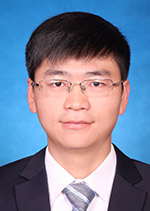磁场驱动内表面抛光工艺研发及理论
日期:2022/05/18 - 2022/05/18
学术讲座:磁场驱动内表面抛光工艺研发及理论
主讲人:Dr. Jiong Zhang, Department of Mechanical Engineering, National University of Singapore
时间:2022年5月18日(周三)上午10:00-11:00
地点:via Feishu
讲座摘要
Internal surfaces are widely used in aerospace, medical and mold industries. The surface quality of the internal surface greatly affects the friction, corrosion and lubrication properties of the components. To address the problems of existing internal finishing techniques, such as uneven material removal, low efficiency or serious environmental pollution, the speaker developed a magnetically driven internal finishing technique (MDIF). This technique has deterministic polishing capabilities, high efficiency and environmental sustainability. Based on Archard sliding wear theory and micro-contact mechanics, the speaker established a theoretical model of material removal mechanism in MDIF. The speaker also proposed a broad echo state learning system (BESLS) to predict the material removal rate based on feature fusion of the polishing force. The BESLS lays the foundation for the development of intelligent polishing systems. Besides, the speaker built a generic modelling framework for the time-variant tool influence function and the corresponding dwell time solution method. This framework facilitates MDIF to achieve complex surface generation and form error figuring internally for the first time. Finally, the speaker will also briefly introduce his achievements in the precision polishing of additively manufactured surfaces.
主讲人简介
 Dr Jiong Zhang has been a research fellow at the Department of Mechanical Engineering, National University of Singapore (NUS) since Feb 2021. He obtained a Ph.D. from NUS, a master's degree from Shanghai Jiao Tong University, and a bachelor's degree from Zhejiang University. His research focuses on precision and smart polishing of non-conventional surfaces, including internal and structured surfaces, either conventionally machined or additively manufactured. Dr Zhang is particularly interested in developing novel polishing techniques for form error figuring and surface enhancement, and modeling the processes via analytical or data-driven methods. He has published more than 19 peer-reviewed journal papers in top-tiered journals such as Int. J. Mach. tools Manuf., Int. J. Mech. Sci., ACS applied materials & interfaces, etc. His excellence in precision engineering was recognized by the European Society for Precision Engineering and Nanotechnology (euspen) and was awarded the Heidenhain Scholarship in 2018. Now he is a member of euspen’s International Scientific Committee and also serves as an active reviewer for several SCI-indexed journals.
Dr Jiong Zhang has been a research fellow at the Department of Mechanical Engineering, National University of Singapore (NUS) since Feb 2021. He obtained a Ph.D. from NUS, a master's degree from Shanghai Jiao Tong University, and a bachelor's degree from Zhejiang University. His research focuses on precision and smart polishing of non-conventional surfaces, including internal and structured surfaces, either conventionally machined or additively manufactured. Dr Zhang is particularly interested in developing novel polishing techniques for form error figuring and surface enhancement, and modeling the processes via analytical or data-driven methods. He has published more than 19 peer-reviewed journal papers in top-tiered journals such as Int. J. Mach. tools Manuf., Int. J. Mech. Sci., ACS applied materials & interfaces, etc. His excellence in precision engineering was recognized by the European Society for Precision Engineering and Nanotechnology (euspen) and was awarded the Heidenhain Scholarship in 2018. Now he is a member of euspen’s International Scientific Committee and also serves as an active reviewer for several SCI-indexed journals.
